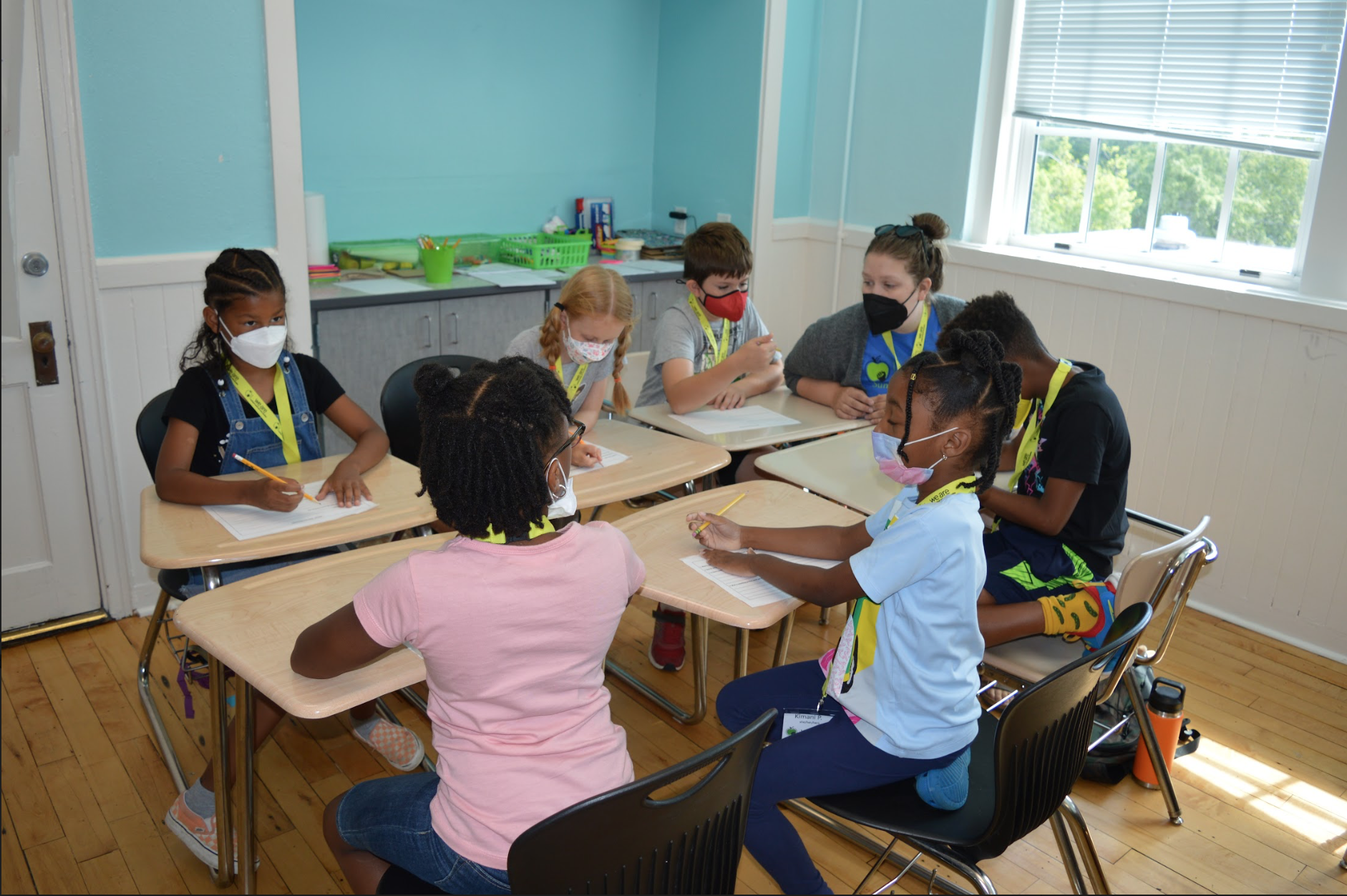A Space to Face Racism: Reflecting on we are Summer Camp
Summer Camp Series #1
By: Caitlyn Case-Cohen (she/hers), Summer Camp Facilitator
As the video on the projector screen ended, the room was quiet and focused. I looked around at the eighteen kids in the room, rising 3rd, 4th, and 5th graders, Black, Brown, and white, sitting grouped at desks writing in their journals, glancing up at the white board where questions were written: “What surprised you about the video? What did you relate to? What questions do you have?” We had just watched a short video from the Being12 Project, featuring clips of 12-year-olds sharing their personal experiences with racism. It was day three of anti-racism camp with we are, and sitting in the classroom with my co-facilitators Janay and Linda, I felt a shift in the energy that morning. The first two days had been filled with nervous excitement, learning and practicing names, creating and writing Community Beliefs on chart paper taped to the wall, reading stories about identity and community, getting to know each other and settling in.
As Janay opened up the floor for kids to share what they had journaled, the energy in the room was attentive, serious, and loving. One by one, several children of color raised their hands to share their own stories of children teasing them because of their skin color or hair. They spoke calmly and matter-of-factly. After each child spoke, Janay asked them how that experience had made them feel. Linda modeled for us all to make a fist and gently rub a circle around our heart, to show our friends that we understood it was hard to share these stories and that our hearts were listening and feeling with them. The children did this action earnestly as they listened, holding each other with care, holding the heavy, heavy weight of racism and its impact on their friends with loving attention. The children speaking embodied the power of being seen and heard in their vulnerability. When I remember this moment, I can still feel it in my heart.
Eventually the energy shifted once again, and we transitioned to outside break time, where the kids ran around giggling and screeching, jumping rope and blowing bubbles. Over the rest of the week, we read stories and did activities that allowed the kids to connect these personal experiences of racism to larger systems of racism, to histories of Black resistance and resilience, and to youth activism (another moment I still feel is when we finished watching a video clip of 9-year-old Chicago activist Asean Johnson and the kids burst into applause and continued yelling his chant of “Education is a right! That is why we have to fight!”).
Being a facilitator at we are camp confirmed and deepened a truth in me: children need and deserve intentional, loving spaces to learn about and process the painful realities of the world, including and especially racism. They handle it with grace, imagination, and a deep sense of justice. To create these spaces is an act of love and respect for our children, and an act of hope for our world, and I am grateful to we are for creating this space in their summer camp.



